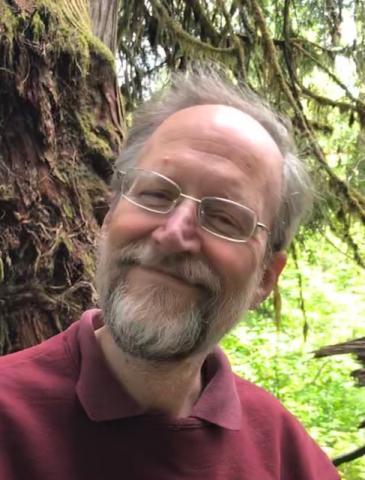- |
User Links
Staff Snapshot: Harry Plantinga
Harry Plantinga is the director of Hymnary.org and has worked at Hymnary from the start. Or, perhaps more accurately, from before the start since he and his friend Greg Scheer conceived the idea and got the first grant.
A physics major as a Calvin undergrad, Harry switched over to the then-new field of computer science in graduate school at the University of Wisconsin at Madison. He now spends about half his time as a professor of computer science at Calvin and the other half both directing Hymnary.org and CCEL.org (the Christian Classics Ethereal Library) and directing software development for PreachingandWorship.org.
There was a time that he did the software development for CCEL.org and Hymnary.org, but with more Hymnary.org programmers on staff, he now is able to spend most of his Hymnary.org time managing the project, setting overall direction and raising funds. A big part of this involves, he says, thinking about what worship leaders, hymnologists, congregants and others need and how to meet those needs.
"Currently I’m thinking about the future of congregational song and how Hymnary.org fits in. The number of hymnals being published in the US and Canada has dropped pretty steadily for the last 100-plus years, and this decade it may be at its lowest level since the late 1700s, not long after the U.S. was founded."
Harry notes that while congregational song isn’t going away, the means by which people access music are changing. Churches are increasingly foregoing hymnals in the pews, for example.
"How can Hymnary.org best serve in this changing environment," Harry asks, adding that Hymnary now is 10 years old which makes this a perfect time to think about how its role might change in the next 10 years.
"I think it’s vitally important that the church be thinking about the role and means of congregational song, now and in the future," he says. "And not just thinking about it, but developing it!"
The machine learning revolution is another area of thought for Harry, and he is working to bring machine learning to the world of hymns via something he calls "Robach," a machine learning system (based on machine translation software) that can be trained on MIDI files.
Although just a hobby for now, Harry say that once trained, Robach could be fed a new melody, and it would “translate” it into a bass line or a tenor line or an alto line: in theory, a four-part harmonization in the style of the music it is trained on.
That could be a while yet though, he admits, adding that he fed it 400 Bach chorales and asked it to generate bass lines in the style of Bach. "And the results were ... interesting! Sometimes good, sometimes terrible, often hilarious. More work needs to be done."
>>>>>>
Here’s an example, Harry says, of the better results so far for Robach: a bass line generated for an existing melody. Which one (#1 or #2) is human composed and which has a bass line that is the work of Robach? Which do you like better? Which is more in the style of Bach? Leave a comment below!


 My Starred Hymns
My Starred Hymns



